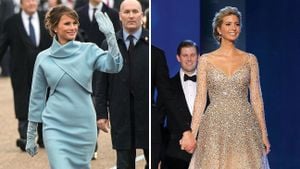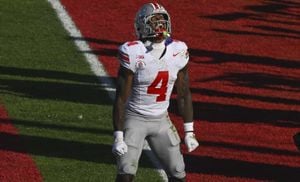On January 20, 2025, during his inaugural address, President Donald Trump boldly declared his intentions to reclaim control of the Panama Canal, stating, "We will get it back." This proclamation reignited discussions surrounding the historical significance and control of this strategic waterway, which was originally built by the United States and completed in 1914.
The Panama Canal serves as one of the most important maritime passages globally, connecting the Atlantic and Pacific Oceans, and allowing ships to avoid the lengthy and perilous route around the southern tip of South America. Control of the canal was handed over to Panama on December 31, 1999, under the terms of the Torrijos-Carter Treaties signed by President Jimmy Carter and Panamanian leader Omar Torrijos.
Trump's comments reflect underlying tensions not only about the canal's ownership but also extend to broader geopolitical concerns, particularly the increasing presence of Chinese shipping within the region. He emphasized, "We did not give it to China, we gave it to Panama," alluding to his assertion of Chinese influence over the canal operations. This claim was met with immediate backlash from Panamanian President José Raúl Mulino, who stated, "The canal belongs to Panama and will continue to belong to Panama." Mulino's reply underscored Panama's steadfast commitment to maintaining its sovereignty and independence.
During his inaugural address, Trump criticized what he termed exorbitant fees imposed on U.S. vessels, including military ships, for using the canal. He articulated concerns about the fairness of these charges and reiterated sentiments he had expressed throughout his campaign, positioning the U.S. as unfairly treated. Trump lamented, "It's foolish to have handed over the canal to Panama," framing the transition as detrimental to U.S. interests. Such rhetoric echoes his pre-election posturing and raises questions about his administration's approach to foreign policy, particularly concerning Latin America.
The idea of reclaiming the canal was not novel; it builds upon Trump's previous statements where he had considered taking over not just the canal but also territories like Greenland. These claims cast Trump’s ambitions as reflective of a broader, more unilateral approach to international relations, which could alarm neighboring countries and challenge established treaties.
Trump's assertion of Chinese involvement has been categorically denied by the Panama Canal Authority. Ricaurte Vásquez Morales, head of the authority, was quoted saying, "China does not exert any influence over our operations," thereby refuting the narrative of Chinese control and maintaining the canal's status as neutral territory. This declaration highlights America's misconceptions about Panama's stewardship and the broader dynamics at play within international shipping lanes.
Public reaction to Trump’s comments has sparked protests within Panama. Demonstrators have taken to the streets, voicing their opposition to Trump’s claims and affirming their nation’s control over the canal. "The Panama Canal is not for sale," was one of the slogans echoed by protesters, reflecting their determination to defend their territory against foreign claims.
The Panama Canal remains central to global trade, with approximately 14,000 ships transiting through it each year, accounting for roughly 3% of the world's maritime trade. This strategic passage not only facilitates international shipping but also contributes significantly to Panama's economy, adding about 3.1% to its Gross Domestic Product (GDP).
Looking back at the canal's history, the construction project was one of the most ambitious undertaken by the United States, resulting in approximately 38,000 deaths during its building phase. Given this historic precedent, Trump’s assertion raises questions about the motives behind his claims and whether they symbolize broader impulses within American politics to revisit elements of past imperialistic endeavors.
Further complicity within this dialog presented itself when there were allegations surrounding the involvement of Hutchison Ports, a private Hong Kong company operating terminals on both ends of the canal. Although the company is not state-owned, apprehensions persist about the influence China could potentially exert through private enterprises. Trump’s claims may be appealing to his political base but risk alienation of Panama, potentially unraveling decades of diplomatic relations founded on respect for sovereignty.
Future discussions on the canal's management and its role within U.S.-Panamanian relations will be imperative as both nations navigate this sensitive topic. Trump's insistence on reclaiming control may lead to strained involvement and unforeseen repercussions on international trade dynamics.
This episode serves as a reminder of the delicate balance between historical legacies and contemporary governance, presenting challenges not just for the U.S. but also for Panama, as it seeks to maintain its sovereignty and manage international partnerships effectively without conceding its hard-won control over the canal.



